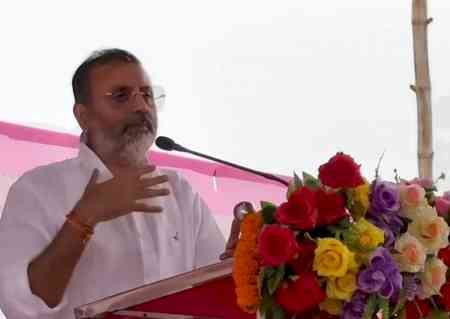Panel to ensure minimum froth formation in Yamuna during Chhath Puja
A Joint Committee of stakeholders has been set up to with a view to control the froth formation downstream of Okhla Barrage in River Yamuna in the capital during the Chhath Puja, it was announced on Monday.

New Delhi, Oct 17 (IANS) A Joint Committee of stakeholders has been set up to with a view to control the froth formation downstream of Okhla Barrage in River Yamuna in the capital during the Chhath Puja, it was announced on Monday.
The stakeholders include the National Mission for Clean Ganga (NMCG), the Upper Yamuna River Board (UYRB), the UP Irrigation Department, the Delhi Jal Board (DJB), the Delhi Irrigation and Flood Control Department, and the Delhi Pollution Control Committee (DPCC).
It has been decided that ecofriendly anti-surfactant shall be sprayed from October 25 onwards till Chhath Puja from boat-mounted sprayers. Other measures to control the froth formation would include operations of a barrage gate to avoid/minimise free fall at Okhla Barrage.
Officials said that this is in addition to the efforts going on towards sewerage interventions and monitoring discharge of industrial effluents under Namami Gange programme, central schemes and state plans. These efforts have brought about different scales of changes in river water quality during different seasons. In view of the festive season, it has been felt to coordinate efforts of different departments in the efforts to try and contain the problem of froth in the Yamuna downstream of Okhla Barrage.
Cleaning of Ganga's tributaries, especially, Yamuna, has been one of the focus areas of the Namami Gange Programme. Whereas a 318 MLD STP at Coronation Pillar has already been commissioned in March 2022, three other main STPs - Rithala, Kondli and Okhla - on the Yamuna, funded by the NMCG, are targeted to be completed by December 2022. Okhla will be Asia's biggest STP.
After the completion of these projects, there will be a considerable improvement in the quality of Yamuna's water as around 1,300 MLD of wastewater will stop flowing into it, officials said.


 IANS
IANS 










